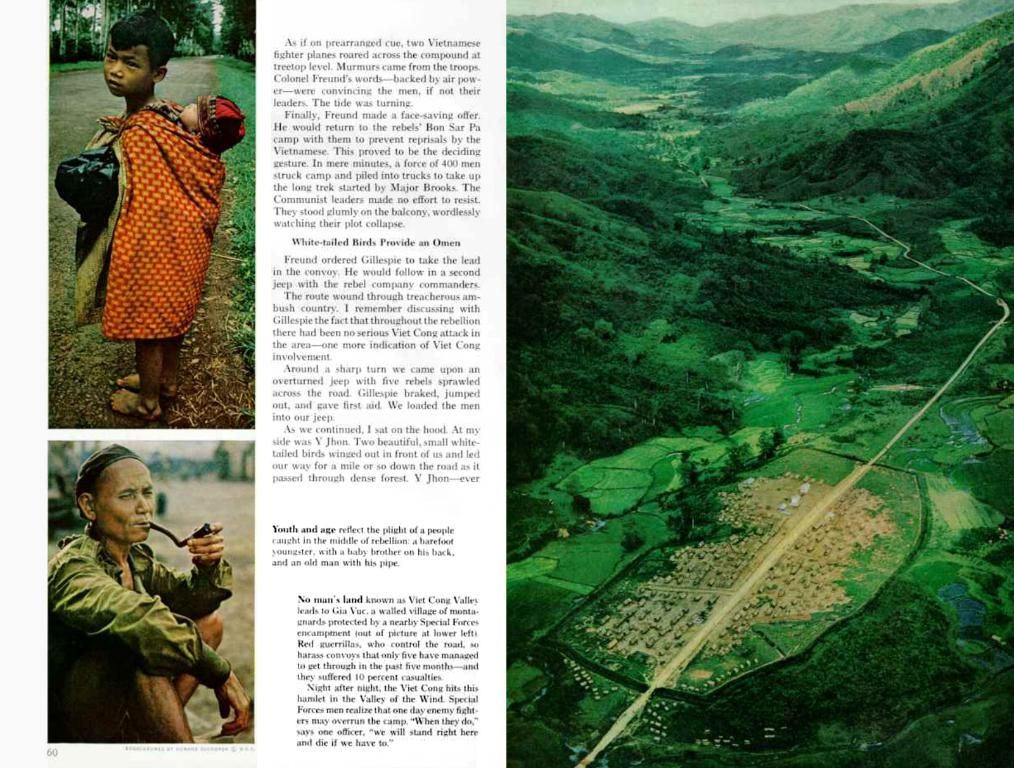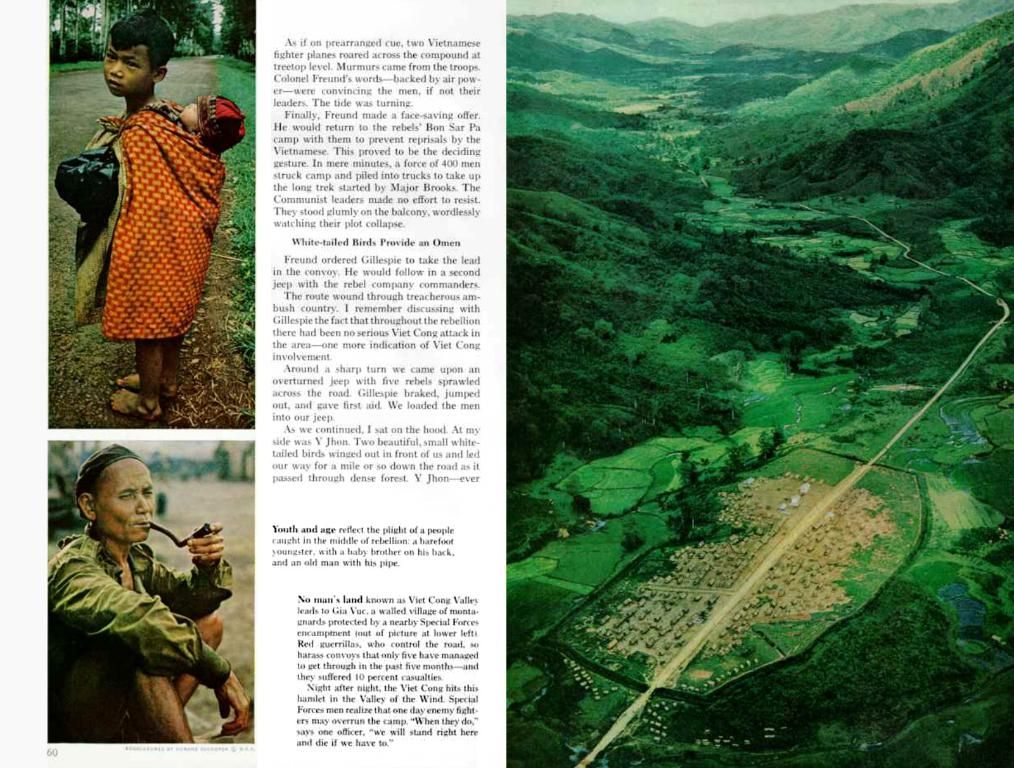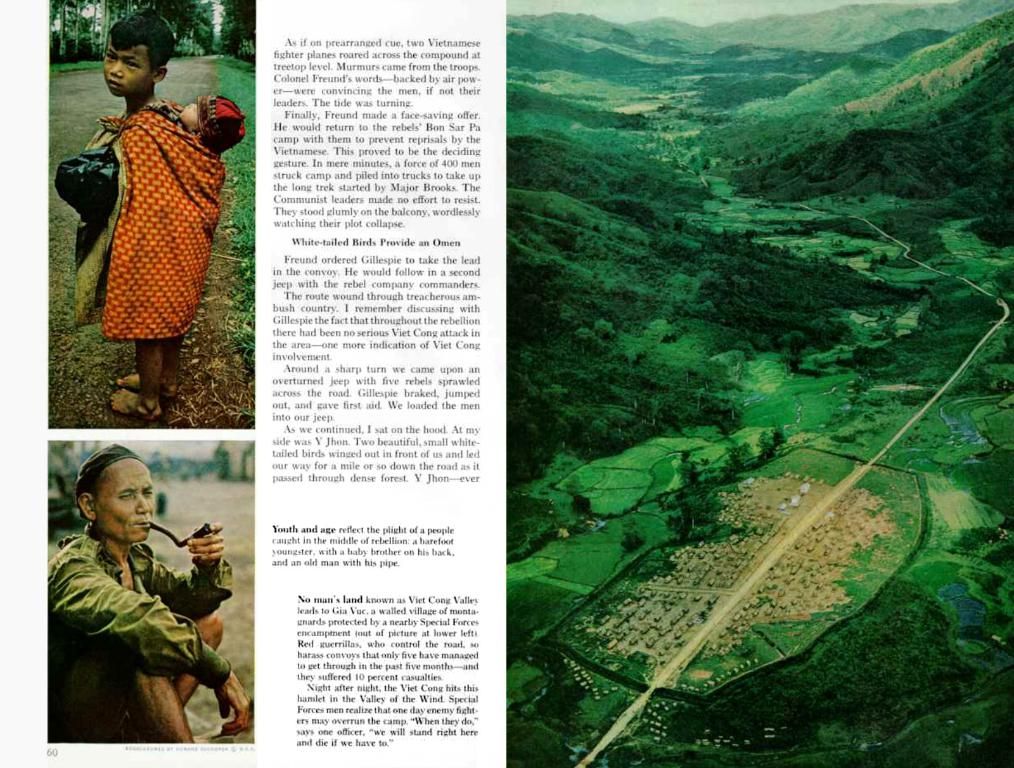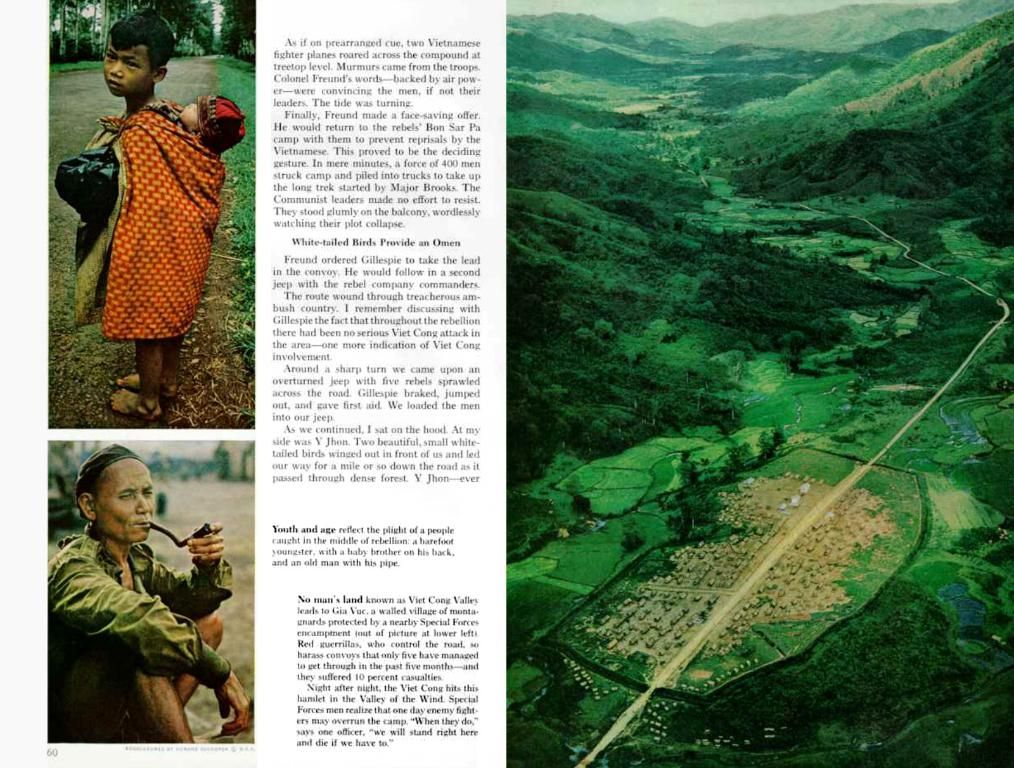Enhancing Collaboration and Infrastructure Improvements are Crucial for Overcoming Water Issues in Central Asia, According to American Specialists' Analysis
Worries about water scarcity in Central Asia are mounting, and a recent report by the Atlantic Council's Eurasia Center sounds the alarm. The report, titled Water Insecurity in Central Asia: The Imperative for Regional and International Cooperation, outlines the challenges faced by Kazakhstan, Uzbekistan, Turkmenistan, Tajikistan, and the Kyrgyz Republic and offers solutions to avert a water crisis.
Image credit: Shutterstock
Water resources in Central Asia have been under constant stress due to population growth, climate change, and poor management. "Central Asia has a unique geography," said Wesley Alexander Hill, a co-author of the report and assistant director of the International Tax and Investment Center. "There is no environmental solution. There is no solution to these issues without a set of political solutions and a set of maxims going forward that can motivate both local actors and the international community."
The report emphasizes the urgent need for cooperation among regional countries and international partners, as well as the significance of water management and infrastructure investment. Hill points out efforts already underway to prevent a water crisis, including talks with China and Russia on water-sharing agreements and initiatives like humanitarian aid exchanges in return for reduced water usage.
Adding to the conversation is Wilder Alejandro Sánchez, president of the Second Floor Strategies consulting firm. Sánchez highlights the potential of technological innovations and modernized Soviet-era canal infrastructure to alleviate the impact of water scarcity at the local level. He also encourages constant dialogue between regional governments, international donors, and the local community.
One area of concern is the potential impact of a water crisis on transportation, particularly the Trans-Caspian International Transport Corridor. Ariel Cohen, a non-resident senior fellow at the Atlantic Council's Eurasia Center, notes that maintaining adequate water levels in the Caspian Sea is crucial for this route's sustainability. In addition, the cotton industry in Uzbekistan relies heavily on water resources that are under severe strain due to population growth, over-extraction, and climate change.
Solving these issues requires not only investment but also a shift in mindset, according to Cohen. By adopting modern irrigation technologies and abandoning wasteful Soviet-era practices, water consumption could be reduced by up to half across the region. Furthermore, water security is not just a matter of regional stability but also a driver for economic growth and diplomatic relations between neighboring countries.
Kazakhstan has already taken steps to address water security challenges. In December, President Kassym-Jomart Tokayev outlined key measures at the One Water Summit in Riyadh, co-organized by France's President Emmanuel Macron and the World Bank. Tokayev called for a unified global response to ensure a sustainable future for all.
As cooperative efforts to tackle water security challenges intensify, Central Asia faces an opportunity to prevent a looming water crisis and pave the way for regional and global growth.
- The report on water insecurity in Central Asia emphasizes the necessity of regional cooperation and international investment to avert a water crisis in Kazakhstan, Uzbekistan, Turkmenistan, Tajikistan, and the Kyrgyz Republic.
- Wesley Alexander Hill, a co-author of the report, stresses the need for political solutions and collaboration among local actors and the international community to find solutions to water scarcity issues.
- Wilder Alejandro Sánchez, president of the Second Floor Strategies consulting firm, suggests that technological innovations and modernized Soviet-era canal infrastructure could alleviate water scarcity at the local level, while constant dialogue between regional governments, international donors, and the local community is encouraged.
- Ariel Cohen, a non-resident senior fellow at the Atlantic Council's Eurasia Center, raises concerns about the potential impact of a water crisis on transportation, particularly the Trans-Caspian International Transport Corridor, and the cotton industry in Uzbekistan, which heavily relies on strained water resources.
- Solving water security issues requires not only investment but also a shift in mindset, as adopting modern irrigation technologies and abandoning wasteful Soviet-era practices could potentially reduce water consumption by up to half across the region, making water security a driver for economic growth and diplomatic relations between neighboring countries.







